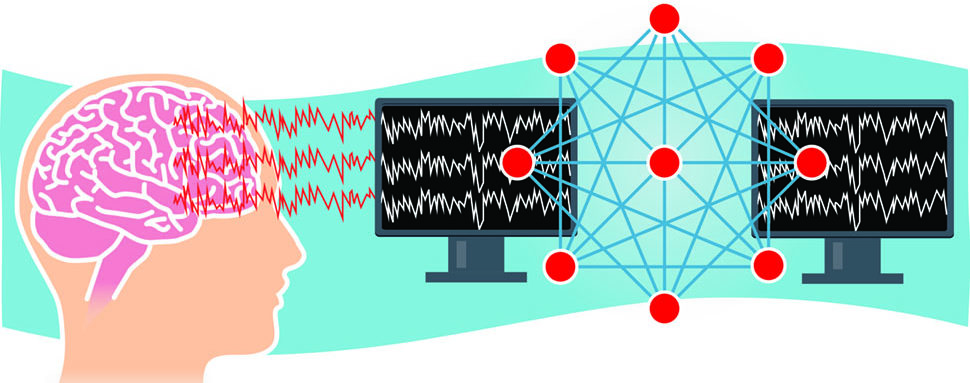Elon Musk recently proclaimed that brain implants capable of enabling telepathy are just around the corner.
While as exciting as that sounds, the reality is that bioelectronic implants that makes us healthier, stronger, and smarter truly are at our doorstep. And more excitingly, these technologies are literally around the corner for Dallas-Fort Worth residents — geographically speaking.
Over the last decade, DFW has become a hub for research and development in neurostimulation technologies. The area has positioned itself at the forefront of clinical research using implantable devices to treat a host of conditions for which modern oral medications either don’t work or the side effects are too severe for patients to handle.
ON A PATH TO BLOW — AND REGULATE — OUR MINDS WITH BIOELECTRONICS
Researchers around the world are developing implantable devices that adjust the electric signals in the nervous system to give patients relief where traditional pharma therapy fails. These devices are capable of sending electronic signals through various nerves in order to either stimulate or inhibit a malfunctioning organ. These targeted therapies can treat a variety of chronic diseases without the side effects found in so many medicines.
The next frontier for this technology is to evolve from a basic therapy delivery system to a complex, self-learning, integrated health system.
While pacemakers and other rudimentary forms of neurostimulation technologies have been around for more than 50 years, recent advances in technology have opened the doors to a new age of medicine. The next frontier for this technology is to evolve from a basic therapy delivery system to a complex, self-learning, integrated health system. Currently under development are systems that can record various bio signals, track symptoms and trends, and report them to physicians who can then prescribe preventative treatment through an entirely digital platform.
The race to make such dreams a reality has picked up speed over the last 30 years and the first of the advances described above are hitting the market now; several of which are being developed right here in Dallas.
BECOMING A HUB FOR BIOELECTRONIC TECH
The DFW area has historically not been a medical device or life sciences hub. And yet, in the last 10 years, it has emerged as a center for innovation in bioelectronics devices, sprouting a significant number of companies and research centers specializing in neurostimulation.
This recent rise to the vanguard can be traced back to the success of Dallas-based Texas Instruments and its former research arm-turned-public university, the University of Texas at Dallas. Tied to Texas Instruments, since the invention of the integrated circuit in 1958, the university turned out a surplus of engineers specializing in integrated circuit technologies. Thousands of these engineers went to work for Texas Instruments, many of whom later re-trained in neuroscience and medical device technologies and found employment with Advanced Neuromodulation Systems, Inc. when the company relocated to north Dallas in 1998.
When Advanced Neuromodulation Systems was bought in 2005, handfuls of its very talented engineers left to start their own neurostimulation companies. They didn’t have to look far to find fertile ground for their new businesses either. With historic ties to the bioelectronics technologies, a telecommunication infrastructure, and well-funded research centers such as UT and the Texas Biomedical Device Center, Dallas quickly became a center for neurostimulation technologies.
DFW AT THE FOREFRONT OF THE INDUSTRY
Today, Dallas boasts a concentration of industry know-how and resources that synergize innovation in the field. Among other industry leaders, DFW is home to Nuvectra, Microtransponder, Nexeon MedSystems, Plexon, and the Center for BrainHealth at the University of Texas at Dallas.
Today, Dallas boasts a concentration of industry know-how and resources that synergize innovation in the field.
These companies and institutions are each at work on a number of distinct projects. While Nuvectra has developed an award-winning spinal cord stimulation device, Microtransponder is using its neurostimulation platform to help patients rebuild damaged motor circuits resulting from a stroke and enables them to relearn commonplace activities (i.e. picking up a cup). The Center for BrainHealth is finding ways to stimulate particular nerves that promise to speed up cognitive skills learning. Nexeon Medsystems, meanwhile, is developing Deep Brain Stimulation devices capable of sensing changes in the brainwaves of a patient with Parkinson’s disease and adjusting stimulation in real time to restore motor control and balance.
Each group is busy with its own cutting-edge clinical research, leading the way with therapies that modify electrical signals in the nervous system to elicit responses that are therapeutic — and in some cases advance the pace and effectiveness of certain kinds of learning.
A SHARED VISION GOING FORWARD
If their projects are numerous and unique, the industry leaders in DFW share a grander vision for the future of their field. Dallas’ bioelectronics researchers are working to create devices that not only treat the hundreds of neurological diseases, but function as the centerpiece of a vast “Internet of Medical Things” (IoMT).
In much the same way the Internet of Things continues to connect and integrate a variety of devices in our daily lives — enabling those devices to exchange data and function together — they envision an IoMT infrastructure where implantable devices report in real time vast quantities of neurological data to various health care IT systems.
Dallas’ bioelectronics researchers are working to create devices that not only treat the hundreds of neurological diseases, but function as the centerpiece of a vast “Internet of Medical Things”
Tracking and leveraging this huge amount of data, health care IT solutions make more informed decisions, communicating necessary therapies to implantable devices that can, for example, instantly modify nerve impulses to stimulate insulin production in the pancreas. All the while, the devices and IT solutions will be in communication with software applications on, for instance, your smartphone. You’ll be kept up to date on your health, knowing when to make an appointment and when and what prescriptions to pick up.
Taking it one step further, these devices could be connected to artificial intelligence capable of machine learning, achieving the sort of brain-machine interface Musk hopes his Neuralink project can accomplish within eight to 10 years. Though many would accuse Musk of being over-optimistic, the innovation coming out of DFW gives us reason to be excited.
There is still so much we don’t understand about the brain, but neurostimulation experts in Dallas are learning more and more every day. In the coming years the area may well become home to a growing number of bioelectronics startups, and quite possibly the birthplace of technologies that profoundly change health care as we know it.
![]()
Get on the list.
Sign up to keep your eye on what’s new and next in Dallas-Fort Worth, every day.

































































